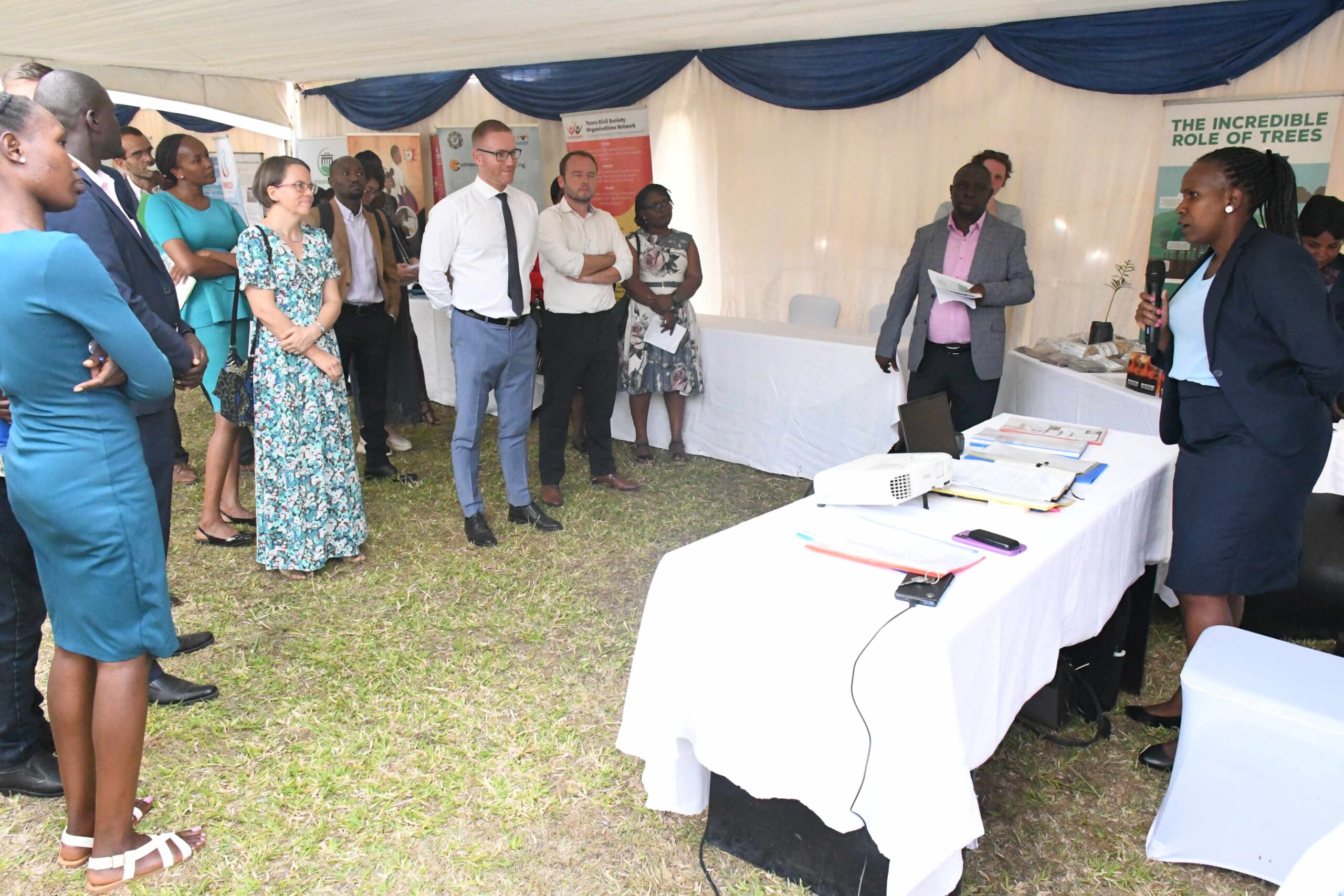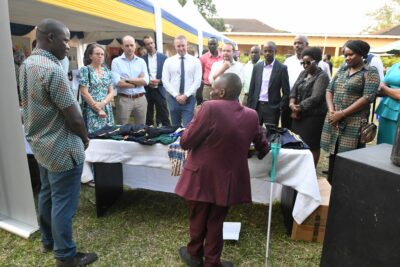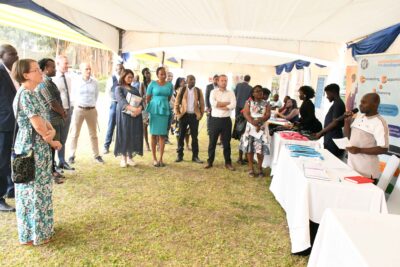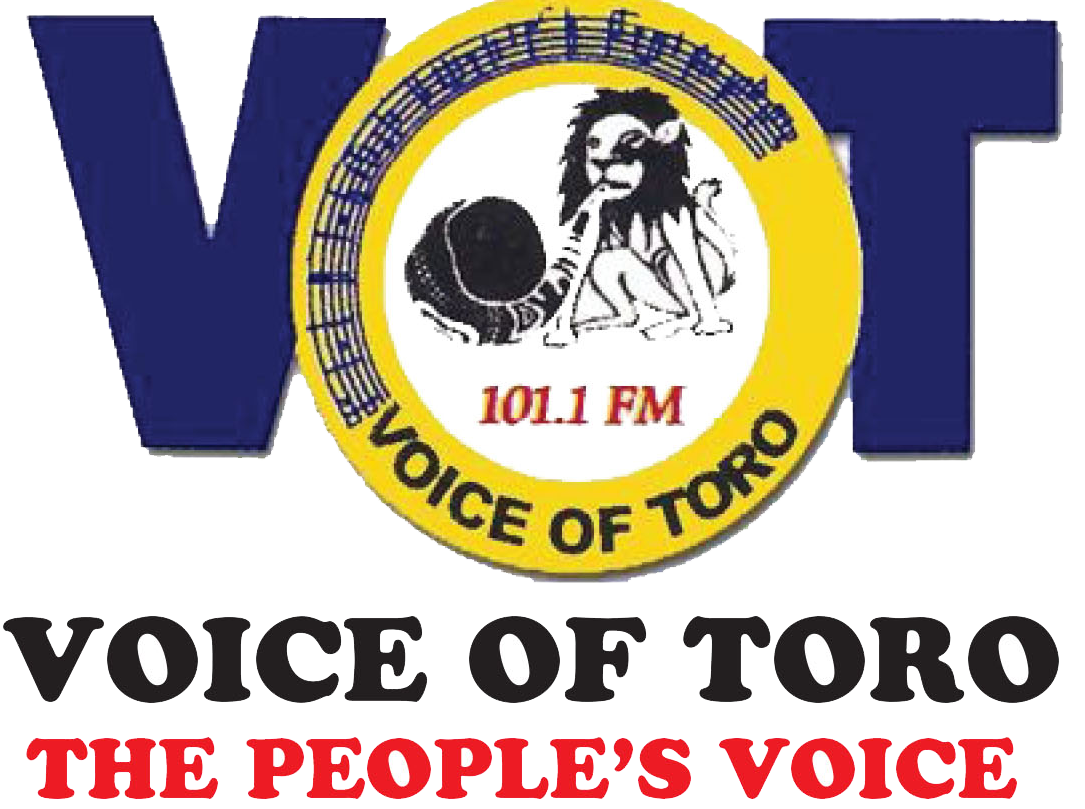
EU reaffirms commitment to Uganda’s growth, pledges more support
By: Betty Mujungu
The delegation of the European Union to Uganda has commended Ugandan non-governmental organizations for their role in driving national development efforts aimed at transforming the country into a modern and prosperous nation.
On Wednesday, the EU delegation, comprising representatives from Belgium, Germany, Denmark, France, Ireland, the Netherlands, and Sweden, held a reception at Mountains of the Moon Hotel in Fort Portal City.
The event provided an opportunity for discussions with local leaders and NGOs from the Tooro sub-region, as well as a platform to monitor the progress of EU-funded projects and strengthen cooperation.
Several NGOs, including Kadiof, KRC-Uganda, NRDI, RAC, Green Shero, and Tooronet, among others showcased their initiatives. The discussions focused on identifying challenges, exploring opportunities for future investment, and outlining strategies for sustainable development.

According to Ms. Karolina Hedström, the European Union’s head of cooperation and the delegation of the EU to Uganda said EU is guided by a multi-annual indicative program, which outlines key priority areas, including green and climate transition, promoting sustainable and inclusive growth, and strengthening democratic governance and social inclusion.
She stated that the EU’s partnership with Uganda for the period 2021-2027 aligns with Uganda’s National Development Plan III and their strategic interests focus on key sectors such as the green agenda, digital transformation, sustainable growth, and refugee response, among others.
“This time, we decided to visit Uganda, specifically western Uganda and Fort Portal City. Whenever we visit, we need to understand the region’s needs. We also aim to improve coordination among ourselves since we support many partners and projects, allowing us to learn from each other,” she said.
Ms Hedström noted that, despite existing challenges, many opportunities can be leveraged, particularly by unemployed youth. She highlighted that during their visit, they discovered that some young people had established NGOs.
“Among the projects we visited, we saw positive results. We toured Rwamwanja Refugee Settlement, where we observed both the challenges refugees face and some promising initiatives, such as social enterprises,” she added.
She said the most significant challenge observed during their visit was climate change in refugee communities and its impact on agriculture, which has severely affected people’s livelihoods and incomes.
“Combating climate change is one of the EU’s key priorities in Uganda. One of our flagship projects in the country is the Uganda Forest Partnership. Uganda is one of seven countries where the EU has signed a forest partnership, a political commitment between Uganda and the EU to work together in protecting Uganda’s forests. We are investing 50 million euros in implementing this project,” she said.
She added that Denmark has also joined the EU partnership to protect Uganda’s forests and the goal of the partnership is to strengthen the forestry value chain, ensuring that people can earn more from the trees they plant while encouraging afforestation as a long-term investment.
Regarding refugees and refugee-hosting communities, she stated that since 2016, the EU has provided 450 million euros in humanitarian and development assistance and currently, they are working with the Ugandan government and other partners to find more cost-efficient and sustainable ways of supporting refugees.

“The needs are enormous, and the question remains whether we can bring in more funding. The EU remains a committed partner to Uganda, and we are doing our best to secure more funds. However, on a global scale, there is a high demand for funding, and in some cases, we have had to reduce budgets due to cuts from donor countries,” she explained.
She further noted that, together with partners, they have explored ways to utilize available funds more effectively, focusing on self-sustainability.
She said one of the strategies for long-term sustainability is partnering with local authorities to create income-generating opportunities that allow organizations to sustain their activities independently of foreign funding.
Mr Tassilo von Droste, Head of Program at GIZ, stated that in Uganda, they are working with several civil society organizations (CSOs), including those in the Rwenzori sub-region, to strengthen their capacity, as many rely heavily on donor funding.
“A lot of CSOs depend on donors for funding. They secure project funding but often lack a strategic plan. Our role is to support their grassroots structures, helping them build the necessary capacity to become strong and accountable so they can independently apply for donor funding,” he said.
He added that GIZ also supports CSOs in advocating for their communities’ concerns, enabling them to develop projects that directly address local challenges.
“We also assist CSOs in complying with legal frameworks. We want them to be strong organizations that are trusted by both the community and the government, ensuring they effectively contribute to implementing sustainable development goals,” he explained.
He urged CSOs not to rely entirely on donor funds but to develop mechanisms for generating their own income. He cited NRDI’s nursery bed tree project as a successful social enterprise, which started with just five employees and has since expanded to employ over 50 people while generating revenue.
Kabarole District Chairman, Mr Richard Rwabuhinga, commended the EU delegation for its continued support to Uganda, emphasizing that the partnership should remain in place as Uganda has significantly benefited from donor-funded projects.
Mr. Luc Pirson, Head of Cooperation at the Embassy of Belgium, reaffirmed the EU’s commitment to supporting Uganda’s development agenda, with a strong focus on promoting sustainable growth, improving livelihoods, and fostering cooperation.


